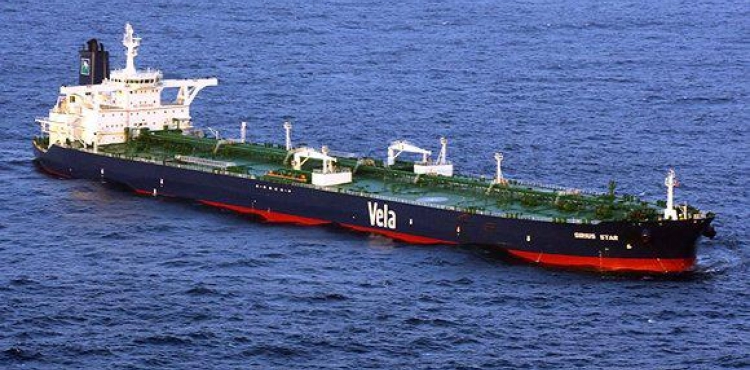From attacks with explosives to sabotage and intimidation, increased operations targeting merchant ships in the Gulf have direct implications for shipowners, who already suffer from increased insurance fees to navigate strategically and strategically dangerous areas.
"The recent attacks on Frontier and Kokukha Corigos in the Gulf of Oman on June 13 caused millions of dollars in losses," said Frederick Denifel, general manager of Garix Group, a marine risk insurance company.
"Talking about bigger losses means a bigger insurance policy," he said, adding that shipowners had been obliged to provide advance notice of navigation in the Gulf and to pay higher insurance fees.
Tensions have been rising around the Strait of Hormuz, through which a third of the world´s crude oil is transported by sea, with attacks on several oil tankers since May, as well as the call by the United States last week to form an international alliance to keep up with merchant ships.
Tehran, which Washington accuses of being behind the sabotage of oil tankers, has denied any involvement.
Ship insurance at an annual rate is about 0.01 percent of its value, said Christian Zaninetti, a specialist in covering commercial vessels with the insurance broker, March France.
Without revealing a specific amount, he has been talking about a nearly 30-fold increase since mid-May for a seven-day round trip with cargo in the Gulf states.
From Qatar Ship Assistance to repairs and paying for lost cargo, Denifel said, "Insurers face increased risk of possible losses and threats."
Some ship owners make this increase in fees reflected on their customers.
Since July 5, the CMA-CGM has imposed an additional charge for "additional risks in the Middle East."
This fee is $ 36 per 20 feet, container unit and must be paid for all goods sent to or from Oman, the United Arab Emirates, Saudi Arabia, Kuwait, Iraq, Qatar and Bahrain.
The rising threat could lead to higher wages for seafarers who have to face greater risks, said Nelly Gracant, chief of security and environment at France Shipowners.
"Trade vessels are in a very fragile situation," said Irving Thomas, the organization´s general representative. "These ships do not have armed escorts like those used by warships.
To protect merchant ships, Washington wants to form an international alliance that can keep up with ships in the Gulf. But this action will not necessarily reduce risks for insurers who fear a "surge" in tension.
"This restored some order when piracy was committed in the Indian Ocean, but we are facing incidents that are considered a threat of war," Zaninetti said.
"We can not keep up with all the ships and organize an ideal surveillance of all shipping in that area" because of the very large cost of it, Denifle explained.
Britain announced on Friday sending an additional warship to the Gulf two days after an incident with the Iranian navy, which tried, according to London, to prevent the passage of a British tanker in the Strait of Hormuz.
The British authorities also indicated the level of maximum alert in Iranian territorial waters and issued security recommendations to companies.
"Our situation in the region has not changed," the French navy said in a statement, noting that there was a frigate with its helicopters and "continuing reporting mechanisms with the merchant navy to see any developments in the situation."
"Of course, the security level is on board," Ghassan said, recalling the main measures: seeking daytime navigation, not reducing the speed of the ship and visiting the watch on the ship´s bridge.












